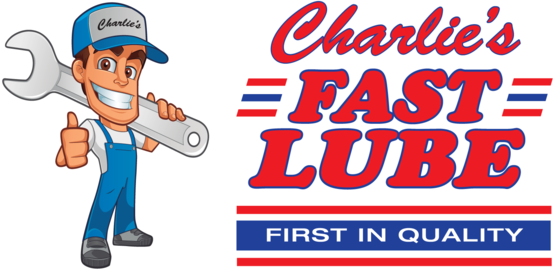Should Anna Soccer Moms Follow the Severe Service Schedule?
August 26, 2018
So you take your vehicle in for maintenance and the pro at Charlie's Fast Lube Anna tells you that you ought to change your oil more often. What? You followed the maintenance schedule – but you take a second look at that “severe service” schedule and see some of the following:
1. Most of your trips around Anna are less than four miles/six and a half kilometers.
2. Most of your trips are less than 10 miles/16 km when outside Illinois temperatures are below freezing.
3. You don't do a lot of Illinois freeway driving, so you drive at low speeds most of the time.
4. You drive in an area with a lot of pollution, dust, dirt, mud or slush.
5. You frequently tow a trailer, haul heavy loads around Anna or use a car-top carrier.
6. The weather in your area can get very hot or very cold.
Surprising, isn't it? Severe driving isn't quite what you'd envisioned.
Ask yourself: "Which auto service schedule should I follow?" For some of us, it's obvious. But for most of us, it's not an either/or question.
One way to decide how often to maintain your vehicle is to picture a line. On one end, imagine ideal driving conditions: year-round moderate Illinois temperatures, only freeway driving, all trips are longer than 4 miles/6.5 km and travel is always at a constant speed of 60 mph/97 kph. At the other end of the line, put the severe driving conditions. Now, stop and think about how you drive, where you live, where you go in Illinois and what you plan to do with your vehicle in the near future. Consider honestly where your driving fits on the line.
For example, if the regular maintenance schedule recommends an oil change every 5,000 miles/8,000 km, the severe schedule recommends 3,000 miles/5,000 km and you fall in the center of the driving conditions line, then 4,000 miles/6,600 km is a happy compromise. Just be honest. You don't want that happy compromise to turn into auto repairs.
Learning why our vehicles need more frequent service can also help us Anna drivers determine a maintenance schedule. For example, fluids in your vehicle are depleted more rapidly the more heat there is in their environment. That heat can come from air temperatures, but also from the extra heat generated in the engine and transmission from stop-and-go driving. Towing a trailer or carrying heavy loads also generates more heat. So under these conditions, fluids must be replaced more often in order to retain their effectiveness.
Moisture naturally builds up inside of an engine because of the heating and cooling it constantly undergoes. When the engine is hot, moisture evaporates; when the engine is cool, moisture condenses. As long as the engine is getting hot enough to evaporate all of the moisture, your vehicle will remain healthy. But short trips don't allow for this and moisture can build up inside the engine. This moisture can lead to the formation of oil sludge, which in turn leads to clogged engine parts and damage.
In dusty or polluted Anna area conditions, filters and fluids just get dirty more quickly. Talk with your service advisor at Charlie's Fast Lube Anna regarding service schedules and which one is right for you. Good car care means taking care of problems before they become problems. And in order to do that, you need to know how often to take your vehicle in to Charlie's Fast Lube Anna for service.
Charlie's Fast Lube Anna
1215 East Vienna St.
Anna, Illinois 62906
618-833-4999
http://www.charliesfastlubeanna.com
Need Service?
More articles from Charlie's Fast Lube Anna

Giving CV Joints the Boot! (CV Joint and Boot Replacement)
April 20, 2025
Ever wonder how your vehicles transmission is connected to your wheels? After all, when you hit a pothole or some other uneven part of a roads surface, there has to be something that can maintain the connection between the transmission and the wheel yet keep everything moving at the same speed. ... More

Wishy-Washy in Anna
April 13, 2025
Perhaps you've found yourself driving when something all of a sudden splashes on your windshield, obstructing your view. You know that sinking feeling when you try to turn on the windshield washers and no fluid comes out. Now you're blinded even more. What can you do? The best thing is to make su... More

All Lined Up (Alignment Inspection)
April 6, 2025
When you head down a straight road, does your vehicle pull to one side? Do you feel vibration in any of the wheels? If you've noticed any of these things, it's probably time for you to get your wheel alignment checked. When your vehicle left the factory, its wheels were parallel to each other an... More









